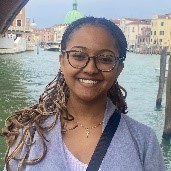(November 20, 2023) –
Children’s rights are under attack. We urgently need them involved in peace processes now more than ever before.
Who would have believed that children, the very essence of our shared future, are at risk of becoming violently extinct?
Now more than ever before, children are under attack. Last year, an unprecedented 27,800 violations were perpetrated against 18,890 children globally, as verified by the United Nations.
Today is World Children’s Day, an opportunity to remind adults about the rights of children. Amid ongoing conflict around the world, it is timely to critique current approaches to peace processes and discuss strategies to better safeguard the well-being of children during and after conflict.
As members of the Western world, we must first acknowledge our role in perpetuating harmful ideologies that limit meaningful child participation in important dialogues - one such ideology is the perception of ‘childhood’. The prevailing notion that children lose their innocence upon acquiring a particular knowledge set has permeated several layers of our society, shaping how adults approach, or rather, avoid, sensitive and potentially controversial topics with children - conflict being one of them.
In fragile contexts - areas plagued by violence, political turmoil and chronic instability - adults cannot censor certain topics from children, a privilege only enjoyed in a few places. The tragic disregard for international human rights and humanitarian law in places like Syria, the Democratic Republic of the Congo, Ethiopia, and Afghanistan has made it impossible for a child to remain naive about the horrors of the world they inhabit, including abduction, sexual violence, recruitment, and even murder.
Children affected by crises are viewed as passive victims, a perspective that undervalues their potential as agents of peace. As a young person, I envision a world where harmful rhetoric such as “they’re just kids” or “let kids be kids,” is replaced with more empowering language so that both parents and children can realize their value as peacebuilders and respect children as active participants in their lives.
I envision a world where children’s views are prioritized and not silenced by the interests of dominating elitist voices. Governments and organizations must create child-friendly processes to facilitate meaningful dialogue with children about the way their experiences have shaped their understanding of themselves and their place in the world.
I envision a world where children living in conflict and crises can be consoled by the knowledge that their suffering is not in vain and that they can help the next child. In 2017, children in Nepal came together to launch the “Schools as Zones of Peace” campaign to ensure safe learning environments during conflict; this example can inspire children worldwide.
I envision a world where children, including those not directly impacted, dare to speak out about the injustices they see, hear, and experience. As we hear about atrocities in other countries in the safety of our Canadian borders, we should engage in self-reflection on our roles in perpetuating oppressive structures within our own country. In Canada, as we continue on the path toward Indigenous reconciliation, we must similarly prioritize the direct and indirect involvement of Indigenous children in these efforts. We shouldn’t wait until children become adults before we take their concerns seriously. We must listen now, otherwise, we risk repeating history.
As conflicts around the globe unfold before our eyes, the urgency to reshape and reform current approaches to peacebuilding is stronger than ever. Child soldiers, orphaned children, and those disabled due to conflict are vulnerable groups with unique needs that deserve advocacy, preferably led by others with similar lived experiences.
This World Children’s Day, young people call on the Canadian government to establish a Global Children’s Advisory Council representing child voices from different fragile contexts, increase funding for programs that support children to become peacebuilders and champion the Youth, Peace, and Security Agenda internationally.
As young people, we have a responsibility to vocalize our concerns and advocate for justice and the elimination of oppression, so that every child can finally have every right.

Tsinat Semagn is a Youth Advocate with World Vision Canada and MSc Global Health Candidate at McMaster University. Tsinat, an Ethiopian immigrant, spent her formative years in Kenya before moving to Canada at the age of 12.